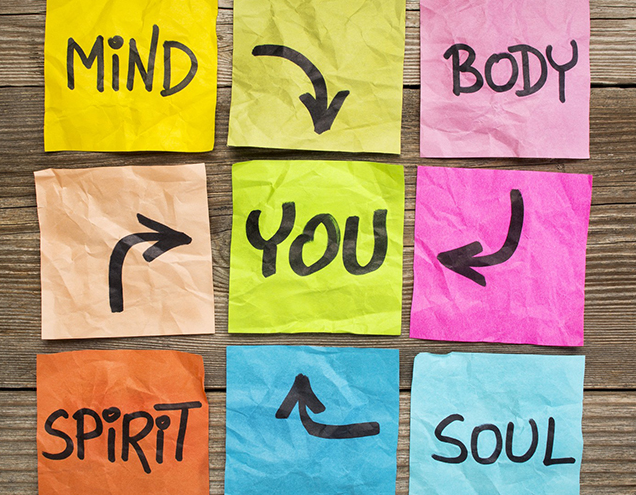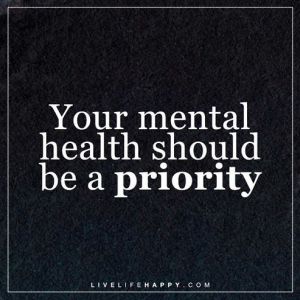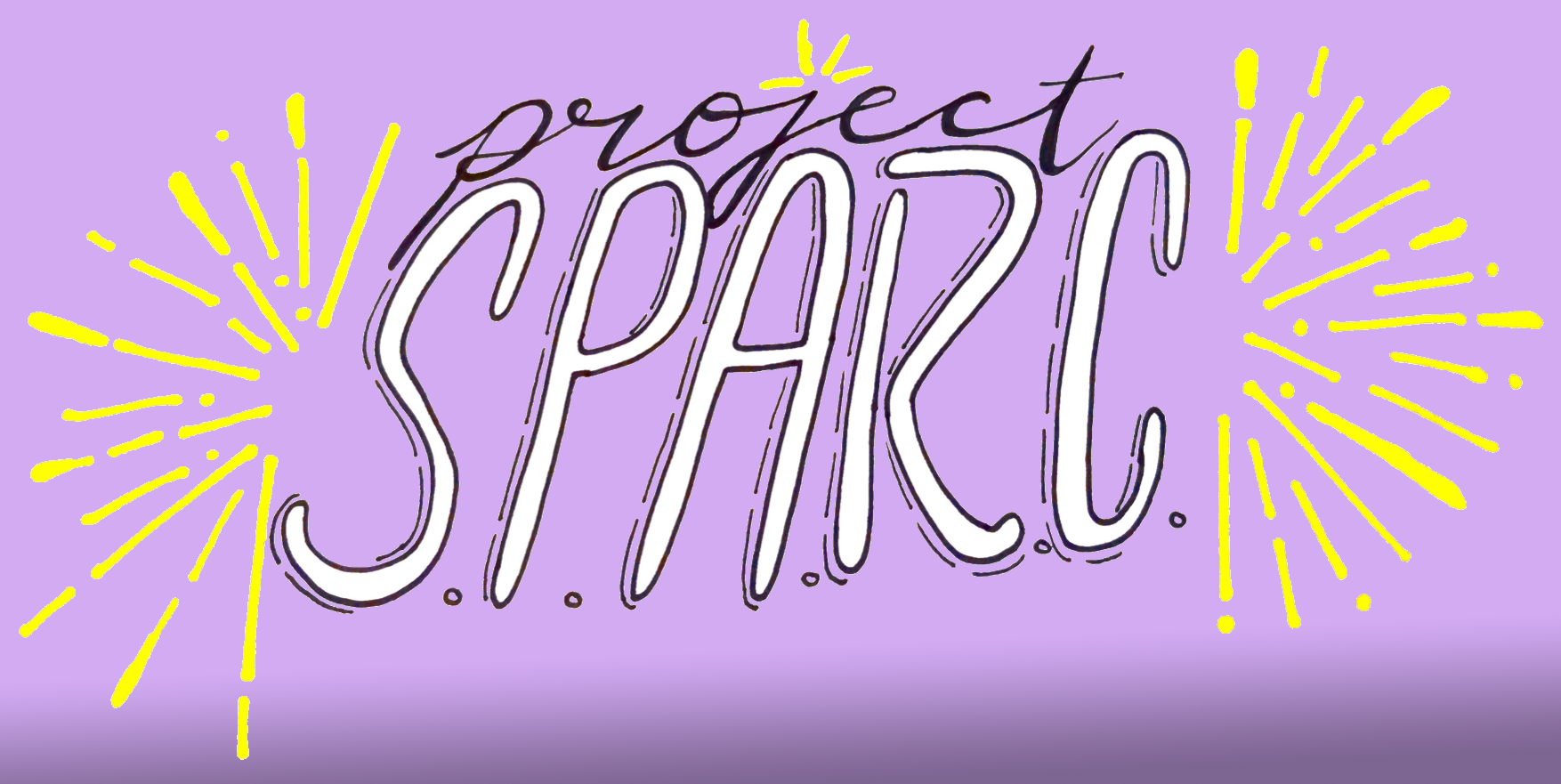
Happiness, Inside & Out
Transitioning into adulthood comes with a unique set of challenges, all of which can take a toll on your health. It is important to feel supported throughout these challenges–whether that means setting some aside some “me time” or talking to a mental health professional. Just like you can’t do your best work when your body is sick with the flu, neither can you do your best work when your mind is struggling with negative thoughts or more serious conditions like depression; so, take some time to explore the local and national resources below and reflect on how you can take care of yourself so that you are putting your best foot forward on every step of your journey.

If you’ve moved from home, look into getting a YMCA membership. Oftentimes monthly fees are waived or reduced if you apply for extra support via local branches. Take advantage of fitness centers at HCC and STCC if you are a student. The membership fee is included in your tuition bill. Community engagement can also play a part, and help you make new friends when you’re in a new phase of your life. Consider joining or visiting Nuestras Raices in Holyoke and Gardening the Community in Springfield for low-cost, fresh produce. Many volunteer opportunities are available to farm and enjoy the land.
Local Mental Health & Wellness Services
- Looking for counseling or emergency wellness services? Programs for addiction and recovery? The Behavioral Health Network, Inc. (BHN) is a regional provider of comprehensive behavioral health services for adults, children and families with multiple Springfield locations.
- If you are a student at STCC looking for health and wellness support, the Health and Wellness Center is here for you. The Health and Wellness Center office is open for patient evaluations year-round. Appointments and walk-in service are available. Location: Ira H. Rubenzahl Student Learning Commons (B19) / Room 177.
- Caring for Yourself at HCC helps students think of wellness as healthiness in many different dimensions of their lives. These include the emotional, physical, occupational, intellectual, financial, social, environmental, and spiritual parts. Explore linked resources to learn about the facets of wellness, and how HCC can support your wellness goals.
- Drop by Out Now Youth to enjoy their inviting space: food, meetings, comfy couches included. Stop by drop in hours Wednesdays 5-7 PM if you are LGBTQ or allied, and are 22 and under.
- Stop by the Impact Youth Access Center if you are 16-21 years of age and are experiencing, or at-risk, for mental health or substance abuse use concerns and need to hang out in a friendly, relaxed space. Jobs, housing, and educational questions answered here.
- What does a “wholeness” routine look like? Check out this video @wellnessatsmith.
National Mental Health & Wellness Services
- NAMI, the National Alliance on Mental Illness, offers a lot of articles on the different types of mental illness–including their symptoms and treatments. This grassroots organization also has a lot of links to support groups, conferences, and advocacy opportunities–mindfully categorizing them according to different social identities and cultural dimensions when appropriate.
- Browse the U.S. Department of Health and Human Services website to discover fitness and nutrition options. Not only will you find articles on why taking advantage of these options is important, but you will also find a lot of guidelines and communities to support you on your journey.
- Visit the National Institute of Mental Health to learn more about the research being done to support the millions affected by mental illness in America. This organization provides a lot of information on mental health statistics and clinical trials, so click the link if you have questions about either.
- The U.S. Department of Agriculture has a lot of information on healthy eating–including educational nutrition articles and income-sensitive food resources.
- Take it further by browsing ChooseMyPlate, which has information on all the major food groups and allows you to plan affordable, healthy meals based on what you learn.
- Stop by MentalHealth.gov to learn more about the myths and facts of mental illness and find resources to support you on your mental health journey. It also offers different guides on how to talk about mental health with people in your life, be they parents, peers, teachers, or even faith leaders.
- EatRight.org has articles ranging from the nutritional value of certain foods to vitamins and supplements that could benefit your overall health. It also combines the food and exercise through articles that inform you what to eat to fuel your workouts. Check it out for specific pointers on how to improve your eating habits to suit your age, access, and lifestyle.
- If you are looking for support that combines resources and advocacy, check out Mental Health America, an organization brimming with articles on why/where to get help and how to support pro-mental health legislation.
Helplines
- Mental Health America Hotline: Text MHA to 741741. Mental Health America is a nationwide organization that provides assistance through this text line. You will be linked to someone who can guide you through a crisis or just provide information.
- National Suicide Prevention Lifeline: 1-800-273-8255. Crisis intervention and free emotional support are available, which is helpful when you need confidential assistance during a time of emotional distress for you or a loved one. The helpline is open 24/7, and a live online chat is available as well.
- Crisis Text Line: Text CONNECT to 741741. Specialized crisis counselors are just a text message away on this free, confidential 24-hour support line. To further protect your privacy, these messages do not appear on a phone bill. The text line also provides services and support if you are upset, scared, hurt, frustrated, or distressed.
